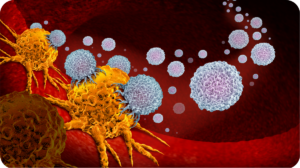The U.S. Preventive Services Task Force has recommended depression screening for all individuals between the ages of 19 and 65. First published in June, in JAMA , the recommendations are an important first step for instituting preventive mental health measures as a part of ongoing primary healthcare.

The task force is a volunteer panel of medical experts working to improve health outcomes across the country, by providing science- and data-backed recommendations for clinical preventive services. They publish their recommendations on their website, and in peer-reviewed journals.
Their most recent recommendations specifically address the need for early detection of what is known as Major Depressive Disorder (MDD), the scientific name for serious clinical depression. Aside from the somewhat obvious connection to suicidal ideation, depression severely degrades quality of life for sufferers. It can be chronic, and the nature of the disease itself often prevents patients from proactively seeking diagnosis, much less treatment.
The Screening Process
Although the recommendations do not include a timetable for frequency of screenings, it makes sense that yearly physicals would be the ideal opportunity to administer these tests. Given the recommendations, it behooves patients to discuss screenings with their primary care providers. There are two stages of screening to determine potential MDD.
- Assessment. The screening process often begins with an assessment of risk factors, including genetic predisposition (close family members who have experienced chronic depression), environmental factors (e.g., financial worries, high-pressure job, loneliness), and medical history of illnesses related to depression, such as some cardiovascular diseases or brain traumas. Gender, age, ethnicity, and geographic location can also inform this preliminary assessment.
- Testing. Specific tests for MDD are the foundation of screening. Your primary care provider or mental health professional can draw from a number of tools to quantify your current state. These include (but are not limited to), the Patient Health Questionnaire (PHQ), the Geriatric Depression Scale (GDS) developed specifically for older adults, and the Epidemiologic Studies Depression Scale (CES-D), among others. Based on the specifics of your case, your caregiver may also consider administering the Beck Hopelessness Scale, the Suicide Assessment Five-Step Evaluation and Triage (SAFE-T), or other suicide-risk identification tool.
Any positive response to assessment and/or testing will usually lead to some form of treatment, which can range from therapy to long-term prescription drugs, or a combination of medication and therapy. Patients don’t need to be diagnosed with MDD to draw benefits from a treatment plan; if you describe yourself as “depressed”—even occasionally—have an open conversation with your primary caregiver.
Understand that self-medication with alcohol or illicit drugs only exacerbates the symptoms and severity of depression. Seek help if you feel you need it, and keep abreast of the task force’s recommendations by regularly checking their website.







